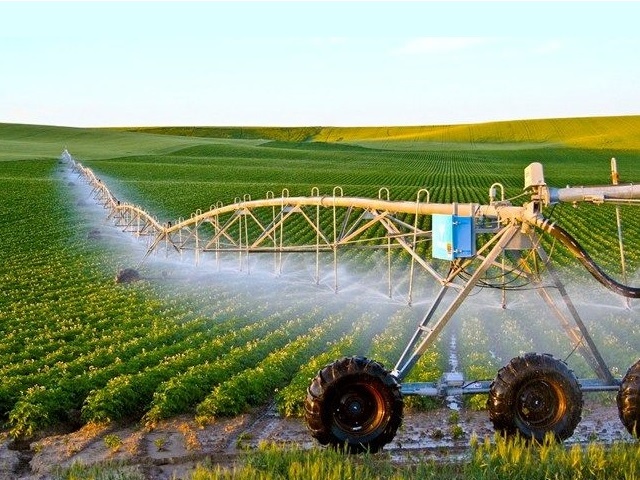Introduction
Modern agriculture is tasked with the enormous challenge of feeding a growing global population while also addressing environmental concerns and resource constraints. One of the key tools that have enabled farmers to meet this challenge is the use of fertilizers. Fertilizers, in various forms, have significantly transformed the world of farming over the past century. In this blog post, we will delve into the vital role that fertilizers play in modern agriculture, their impact on crop production, and the crucial need for sustainable fertilizer practices.
The Evolution of Fertilizer Use
Fertilizers have a long history dating back to ancient civilizations, where farmers used manure, compost, and other organic materials to enhance soil fertility. However, the widespread use of synthetic fertilizers began in the early 20th century, marking a turning point in agriculture. These synthetic fertilizers, typically containing essential nutrients like nitrogen, phosphorus, and potassium, boosted crop yields exponentially.
Increased Crop Yields
One of the primary benefits of fertilizers is their ability to provide essential nutrients that plants need for growth. These nutrients are typically divided into three main categories:
Nitrogen (N): Nitrogen is crucial for plant development, especially in terms of leaf and stem growth. It is responsible for the lush, green appearance of healthy plants.
Phosphorus (P): Phosphorus is essential for root development, flowering, and fruiting. It plays a vital role in the transfer of energy within the plant.
Potassium (K): Potassium aids in overall plant health, disease resistance, and the regulation of water usage.
Fertilizers allow farmers to provide these nutrients to crops in a readily available form, ensuring that plants have access to the elements needed for optimal growth. As a result, crop yields have increased dramatically, allowing us to produce more food on the same amount of land.
Types of Fertilizers
Fertilizers come in various forms, each tailored to specific needs and conditions:
Nitrogen Fertilizers: These are essential for promoting leafy growth and are commonly used on crops like corn, wheat, and leafy vegetables.
Phosphorus Fertilizers: These are critical for root development and are used for crops like potatoes, carrots, and other root vegetables.
Potassium Fertilizers: These support overall plant health and are applied to a wide range of crops, including tomatoes, soybeans, and fruit trees.
Compound Fertilizers: These contain a mix of nutrients in a single product, making them convenient for farmers. Examples include NPK (Nitrogen, Phosphorus, Potassium) fertilizers.
Organic Fertilizers: Derived from natural sources like animal manure, compost, and bone meal, organic fertilizers provide a slow-release of nutrients and improve soil structure.
Environmental Considerations
While fertilizers have undoubtedly played a crucial role in increasing agricultural productivity, their use is not without environmental concerns. Excessive or improper use of fertilizers can lead to various problems, including:
Water Pollution: Excess nutrients can leach into water bodies, causing harmful algal blooms and depleting oxygen levels in aquatic ecosystems.
Soil Degradation: Overreliance on synthetic fertilizers can lead to soil degradation, reducing its ability to retain water and nutrients naturally.
Greenhouse Gas Emissions: The production of synthetic fertilizers is energy-intensive and can contribute to greenhouse gas emissions.
To address these issues, modern agriculture is increasingly focused on implementing sustainable fertilizer practices.
Sustainable Fertilizer Use
Sustainable agriculture aims to strike a balance between crop production and environmental stewardship. When it comes to fertilizer use, several practices promote sustainability:
Precision Agriculture: Using technology like GPS-guided equipment and soil sensors, farmers can apply fertilizers precisely where and when they are needed, minimizing waste.
Cover Crops: Planting cover crops during fallow periods can help improve soil health and reduce the need for fertilizers.
Organic Fertilizers: Organic materials like compost and manure can be used to enrich the soil, reduce synthetic fertilizer dependence, and improve soil structure.
Crop Rotation: Rotating crops helps prevent nutrient depletion and reduces the risk of pests and diseases, often requiring fewer fertilizers.
Nutrient Management Plans: Developing and following nutrient management plans helps farmers optimize fertilizer use, reducing excess nutrient runoff.
Conclusion
Fertilizers have undoubtedly played a crucial role in modern agriculture’s ability to meet the ever-growing demand for food. However, their use comes with environmental responsibilities. Sustainable fertilizer practices, such as precision agriculture, organic fertilizers, and proper nutrient management, are essential for ensuring that agriculture remains productive while also preserving the health of our planet. Balancing the need for increased crop yields with environmental stewardship is the key to a sustainable and food-secure future.





